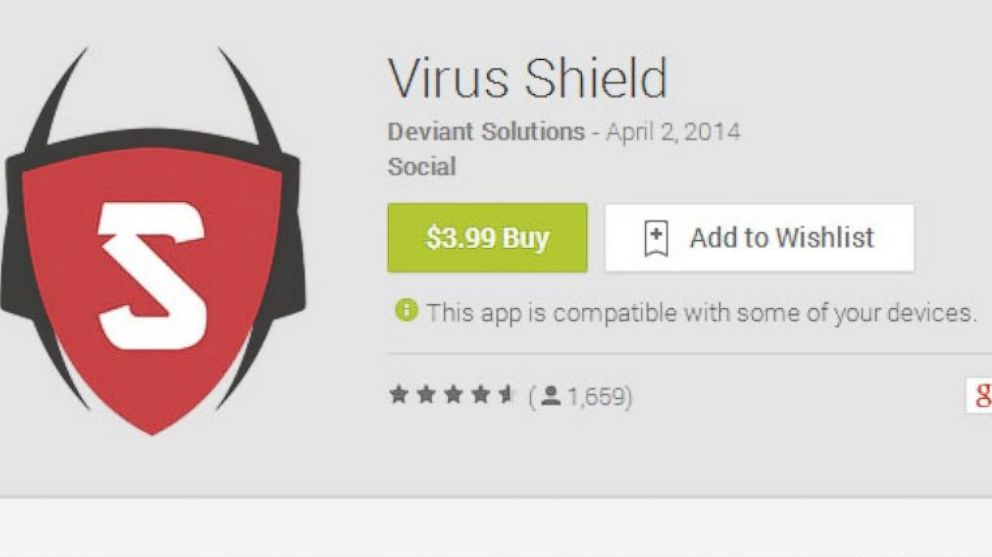Best-Selling Google App Was 'Total Scam,' Reviewers Say
A best-selling Google app turns out to have been bogus.

April 8, 2014 -- Maybe the developer's name -- Deviant Solutions -- should have been a hint. But ignoring that red flag, 10,000 customers paid $4 each to download an app that became, briefly, Google Play's best-seller: "Virus Shield."
Its success violated a principle even more immutable than Moore's Law, which governs computing power: You can't get something for nothing.
In exchange for their $40,000 collectively spent on the app, buyers got absolutely zilch, according Android Police, an app review site.
"Don't believe us?" Android Police challenged readers on its site. "Then check out the code for yourself. We've confirmed that this app is totally and completely devoid of any security benefit." They further said, "Several Google+ users have helped us to confirm its bogus nature."
Virus Shield, according to the app's self-description, promised to protect a user's device from harm by scanning apps, settings, files and media for viruses in real time.
Android Police found that Virus Shield lacked the software to do any of that. All it did, in response to a finger-tap on its screen, was change an "X" mark into a check-mark, implying (falsely) that it had scanned and found no viruses. "Let's not mince words here," said Android Police. "This is a fraud, pure and simple."
Google, without acknowledging any problem with the app or issuing a statement, has now withdrawn it from sale. Under Google Play's terms of service, customers who buy apps that do not perform as stated are told to notify Google of the failure. "In the case of Android apps," says Google, "you should contact the developer." Google says it reserves the right to issue refunds or credits at its sole discretion.
Google did not respond to a request for comment from ABC News. ABC News attempted to contact Deviant Solutions but could find no current contact information for the company.
How could an apparently fraudulent app become a best-seller? Easily, say experts.
WillowTree Apps of Charlottesville, Va., has produced some 180 apps since 2007. CEO Tobias Dengel and Android developer Derek Brameyer told ABC News that Apple and Google, the leading sellers of apps, have dramatically different standards for vetting the apps they sell.
Apple's vetting process, they say, takes weeks. Google's can take 60 seconds.
"Apple and Google have markedly different philosophies," Dengel said. For an app to be accepted for sale by Apple, its developer has to comply with a 30-page list of Apple's requirements. "We've had apps rejected just because in one place we covered up the Apple logo with navigation. Theirs is an incredibly detailed review," he said.
Apple removes photo app from app store after nudity complaints
Google has a different philosophy, Dengel and Brameyer said: An automated process scans the app to see if it harbors any malware. Beyond that, there's no further check, they said. Google, they and other experts confirmed, does not check to see that the app provides the function promised.
The upside to that laxness is that Google's app buyers have available to them all sorts of content that Apple would not approve, Brameyer said. For example, Apple will reject apps that in their opinion have too little content. Apple, he said, is famous for once having observed that "the world doesn't need another fart app."
The downside to Apple's more scrupulous approach, Dengel said, is that a legit app can be rejected on the basis of an arbitrary judgment.




